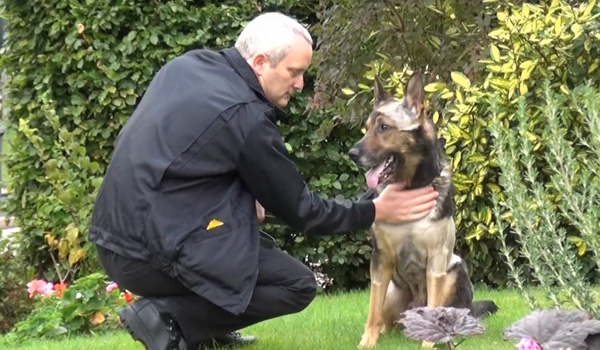`Finns Law` petition leads Government on new protection path for police animals
The Government has had a change of heart over giving extra legal protection to police animals.
The Government has had a change of heart over giving extra legal protection to police animals.
It has heeded the lead given by a massive parliamentary protest, and agreed to “explore” whether the law can offer more appropriate help.
Campaigners are seeking to change current sentencing laws, as offenders convicted of attacking police animals can only be charged with criminal damage if they are to receive prison terms of longer than six months.
The maximum sentence for this offence is ten years but this penalty is rarely applied.
MPs were last month forced to debate bringing animal protections in line with those for officers after some 120,000 people signed the Finns Law petition.
In a new statement signalling its U-turn, the Government has accepted it is “unpalatable to think of police animals as equipment as is inferred by the charges of criminal damage”.
It went on: “This does not seem to convey the respect and gratitude police and public feel for the animals involved and their contribution to law enforcement and public safety.
“The Government has therefore agreed to explore whether there is more that the law should do to offer the most appropriate protections to police animals and all working animals.”
Now the Sentencing Council is to be asked to consider assaults on police animals as an “aggravating factor” as a part of its current review on guidelines for sentencing in the Magistrates Courts, which includes animal cruelty offences.
In last month`s Commons debate, Policing and Fire Minister Brandon Lewis agreed with parliamentary colleagues that the current language around criminal damage can seem inappropriate.
However, he rejected calls to add new protections to the Policing and Crime Bill, as he believes more time is needed to consult on whether the law should focus just on police animals or working animals across all sectors.
Mr Lewis said: I absolutely understand the fact that the language used in the charging of assaults can be completely unpalatable.
We dont simply see these brave and important members of our policing family as property. They are more than property, they are a living, breathing thing.
He added that the issue is complicated because it goes wider than police dogs, and that he has written to the Ministry of Justice and the Department for Environment, Food and Rural Affairs to explore protections for all working animals.
The Finns Law campaign was established after Police Dog Finn and handler Police Constable Dave Wardell were stabbed while pursuing a suspect in Stevenage, Hertfordshire.
Within just two weeks, the petition Give status to Police Dogs and Horses as Police Officers calling for a parliamentary debate on extra protections received the necessary 100,000 signatures.
However, the Governments original response denied the need for a new sentence, as it viewed the current maximum penalty as sufficient.
Mr Lewis reassured MPs that he would seek legislative change in 2017 if he believes it was required.
He revealed several other measures to improve the treatment of police animals including the joining together of police dogs and mounted policing in one portfolio under the current national mounted policing lead, Deputy Chief Constable Rod Hansen.


